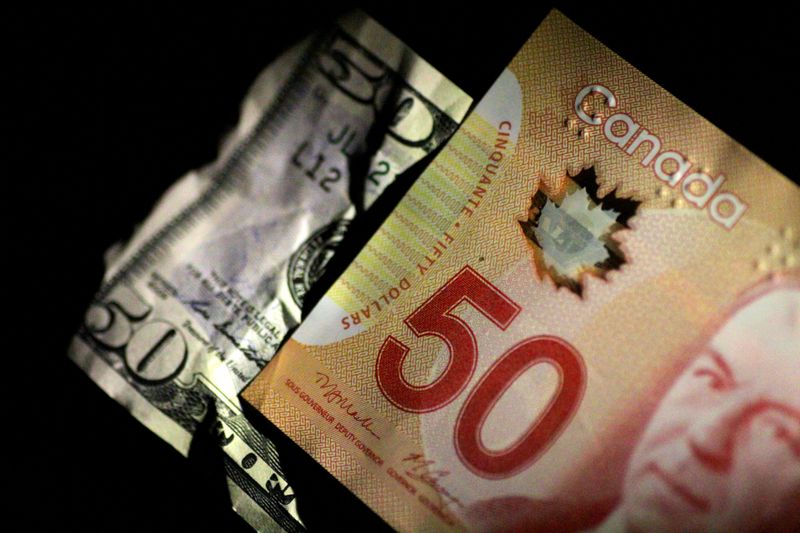By Saqib Iqbal Ahmed
(Reuters) - The Canadian dollar rose to a near-six-week high against its U.S. counterpart on Wednesday, after data showed Canada's annual inflation rate in June posted its biggest acceleration in more than nine years.
The inflation rate spiked as restrictions imposed to curb the coronavirus outbreak were lifted, Statistics Canada said on Wednesday.
The Canadian dollar
"In terms of the Bank of Canada, I don’t think it has a lot of bearing on what the central bank plans on doing with policy," said Royce Mendes, senior economist at CIBC Capital Markets.
"The key to remember here is the bank is trying to get a sense of the underlying pace of inflation. So this one-month move, while large in isolation, probably won’t change their view of the economy and how much inflation it’s likely to be able to generate," Mendes said.
The Bank of Canada - which says interest rates will remain near record lows for another two years - predicts inflation will remain weak in the near term.
"Given the huge amount of spare capacity that has opened up, we doubt that core inflation will return to 2% on a sustained basis within the next few years," Stephen Brown, senior Canada economist at Capital Economics, said in a note.
The loonie, which has been in a narrow range against the greenback for the past seven weeks, has benefited from the recent recovery in the price of oil, one of Canada's major exports, and a broad weakness in the U.S. dollar.

On Wednesday, Canadian government bond prices were mixed across the maturity curve. The two-year (CA2YT=RR) yield was at 0.282% up from 0.272% late on Tuesday, while the benchmark Canadian 10-year (CA10YT=RR) yield slipped to 0.507% from Monday's 0.518%.